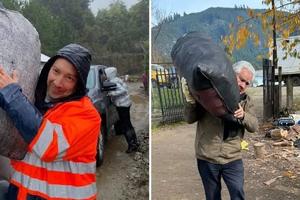Archbishop Laments 10,000 People Have Died Waiting For Medical Care in Chile
During the first four months of this year, 9,139 patients in the public system have died in Chile while waiting for a consultation with a medical specialist.

The archbishop of Concepción in Chile, Fernando Chomali, shared a reflection on the crisis in the public health care system in the country, where in the first four months of 2023 nearly 10,000 people died while waiting for medical attention.
The Diario Concepción newspaper published the archbishop’s reflection under the headline “10,000 people died waiting,” which exposes the injustice of a health care system that doesn’t serve the poor.
During the first four months of this year, 9,139 patients in the public system have died in Chile while waiting for a consultation with a medical specialist.
During the COVID-19 pandemic, many diagnoses and treatments were put on hold or patients received poor care. This especially affected patients with oncological and cardiovascular diseases, which today constitute the leading causes of death.
If the patients on surgical and dental waiting lists are included, the death toll rises to more than 10,000 people.
A ‘Dramatic Situation’
In his article, Archbishop Chomali pointed out: “It’s been known for years that the capacity of the hospital system is not enough to meet the medical needs of citizens.”
“So, like one more piece of news, in the midst of so many misfortunes that overwhelm us, the fact is that 10,000 people died waiting for surgery in the last four months. On that waiting list there are only poor people,” he noted.
Likewise, he observed that these are “the same people who lack the resources for decent housing, have measly pensions after a long life of working, and are looking for subsidies because they have difficulty finding work, giving their children a good education, and living in safe places.”
“If they had had resources, the outcome would have been different,” the archbishop said.
“In addition to the death of a person, the sadness of the family and the indifference and coldness of society is added,” he lamented.
“This fact should deeply call into question public health policies, the distribution of medical personnel and material resources and, above all, the truth and meaning of medicine,” he noted, “but above all the economic model that governs us.”
“On the one hand we see in the news media and social media the excesses of a few, and on the other hand, the want of the many,” he stressed.
Among the causes of this “dramatic situation” he listed “the commodification of medical services — that we speak, for example, of users and clients and not of patients — the fact that they are services that are traded in the market as a commodity according to the law of supply and demand, added to the scant awareness that a social mortgage encumbers the sciences.”
“In the end, the state does what it can and, by the way, with the best intentions, but it has collapsed,” he acknowledged. However, he praised the work of the health care system in Chile in dealing with the pandemic itself.
The archbishop noted that “with the resources it has available, the state is incapable of responding to the pressing demands of the vast majority of the inhabitants of Chile who don’t have access to private health care systems.”
“There is a great injustice that cannot continue to drag on,” the prelate stressed.
Along these lines, the archbishop stated that “being cared for is a fundamental human right” that cannot be contingent on economic, social, or political factors.
Archbishop Chomali therefore called for “energetically marshaling all levels of society and embarking on the path towards equity in the right to be cared for,” placing “the dignity of the human person, justice, and the principles of subsidiarity, solidarity, and above all fraternity” at the center of the debate.
- Keywords:
- chile
















